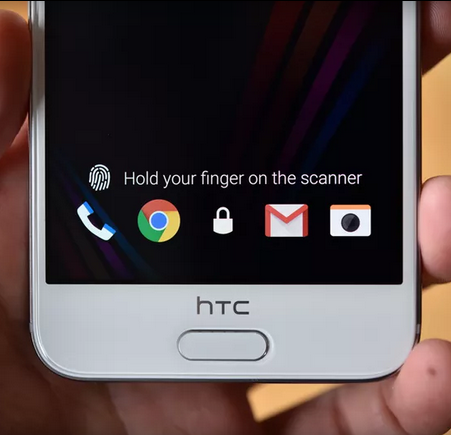Find out the week’s top mobile stories from around the world.
This week.. Apple removes 250 privacy infringing apps from the app store, fingerprint scanners are now “essential”, Facebook fights for free internet in India and Microsoft mobile payments are “coming Soon” plus much more.

Apple pulls 250 privacy-infringing apps from store
Guardian
Apple has removed 250 apps from its store after discovering a widely-used advertising network was siphoning off private information such as email addresses in breach of the company’s policies.
The apps, which are largely from Chinese-based developers, all used a software development kit (SDK) called Youmi to build in advertising. But, apparently unknown to the developers, Youmi also built in code that would steal user data and upload it to Youmi’s own servers.
The problem with Youmi’s code was first discovered by researchers from Purdue University, but gained attention when independently reported by research firm SourceDNA, which highlighted the fact that the malicious apps were the first that it had seen successfully bypass the app review process.
Read more…
Microsoft’s Mobile Payments Service Is Coming “Soon”
Tech Week Europe
Microsoft could be gearing up to take on the likes of Apple Pay and Android Pay with the relaunch of its own mobile wallet service, a senior company executive has said.
Speaking to The Verge, Microsoft’s Joe Belfiore said that the company will look to have its Microsoft Wallet payment solution up and running soon, and that it will be focused around its Windows 10-powered mobile devices.
“Windows is going to have a wallet concept. You’ve seen it on phones before. We’re going to continue to iterate it,” Belfiore, who is Microsoft’s vice president and manager for the Windows Phone programme management, said. “We’re going to think about the range of payment scenarios.”
Read more…
Apple tells judge it’s ‘impossible’ to access data on locked iPhones
Venturebeat
Apple told a U.S. judge that accessing data stored on a locked iPhone would be “impossible” with devices using its latest operating system, but the company has the “technical ability” to help law enforcement unlock older phones.
Apple’s position was laid out in a brief filed late Monday, after a federal magistrate judge in Brooklyn, New York, sought its input as he weighed a U.S. Justice Department request to force the company to help authorities access a seized iPhone.
In court papers, Apple said that for the 90 percent of its devices running iOS 8 or higher, granting the Justice Department’s request “would be impossible to perform” after it strengthened encryption methods.
Read more…
Fingerprint readers are now essential
The Verge
It’s been a long time since you could point to a single item on a spec sheet and say that it distinguishes the latest smartphones from their predecessors. The must-have features in phones are usually more ephemeral, such as a camera that’s easy to use and a design that appeals to one’s senses as well as sensibilities. Fingerprint readers are today’s exception to that rule: they draw a clear line of hardware distinction between the phones of the past and those that we’ll be using in the future.
2015 has been a great year for fingerprint scanners in two major ways. Firstly, all companies figured out how to make or acquire really fast and accurate sensors. Last year, only Huawei and Apple could lay claim to having the technology at a usable state, but now we have the Samsung Galaxy S6, HTC One A9 and M9+, Xperia Z5 and Z5 Compact, and even the LG V10.
Read more…
City AM: ‘We’ve banned ad blockers for ourselves but it’s only a matter of time before other publishers follow suit’
The Drum
City AM believes its decision to ban ad blockers is just the start of a more conscious riposte from publishers to the threat ad blocking poses to their revenues, but argues advertisers and technologists need to chip in to find techniques powerful enough to convince readers that they’re benefiting from ads.
The financial freesheet has become the first UK newspaper to ban readers who use ad blockers from its website. Desktop readers seeking ad-free articles using Firefox browsers are greeted with blurred out text, ahead of a wider rollout to other browsers.
Read more…
As Myanmar’s mobile, internet penetration soar, social payments could be next
Tech in Asia
The Myanmar market is getting online micropayments through social media, thanks to a deal between Singaporean social payments companyFastacash and MyPay, a Myanmar-focused payments provider. Fastacash will make a strategic investment into MyPay, powering the latter’s payments system with its paying-through-your-social-networks tech.
The aim is for Burmese users of MySquar, a widely used social network run by a local startup, to be able to pay through its Facebook Messenger-like feature, MyChat. MyPay announced today it’s partnering with MySquar to achieve this goal.
Read more…
Facebook continues fight for ‘free internet’ in India, hands $1.2M to local startups
Tech In Asia
In response, Facebook last month renamed Internet.org to “Free Basics” and opened up the API to allow other developers to create apps that would work with its scheme.
The social network company also launched the Innovation Challenge, an initiative to encourage the development of apps that would work with Internet.org. The challenge was split up into four categories of people that Facebook decided could use help from online tools: farmers, women, students, and migrants.
Read more…
The fintech bubble we warned you about is already popping
Business Insider
British peer-to-peer lenders are already shutting up shop ahead of regulation of the sector, according to reports.
The UK’s Financial Conduct Authority (FCA) is in the process of regulating the peer-to-peer sector, where people can lend money directly to consumers and businesses via online platforms.
The sector has exploded in popularity since the 2008 crash due to a drying up of credit and the stagnation of interest rates (people who lend money over the platforms typical get rates of 8% or more, compared to the Bank of England’s 0.5% rate.)
Read more…
Report: 66% of operators can’t block A2P traffic from illegal third-party sources
Fierce Wireless
Research from Tyntec, a mobile services company, and analyst firm Mobilesquared found that mobile operators are experiencing a boon in app-to-person (A2P) messaging to the tune of up to 36 percent growth year-over-year.
The study said two-thirds of the traffic comes from unauthorized gray routes, and Tyntec believes blocking those could be an opportunity to monetize A2P messaging to a possible $60 billion by 2018.
Read more…
Facebook’s Instant Articles Roll Out for all iPhone Users
Mobile Marketing Magazine
Facebook’s Instant Articles, which aim to speed load times for publishers working with the social network, have been around for five months now, and the format is finally being rolled out to all iOS users following an initial limited pilot.
The expansion was announced by Chris Cox, chief product officer for Facebook, atThe Wall Street Journal‘s WSJD Conference, where he also revealed that a public beta for Android users would be launching today, with plans to make the feature widely available on Android later this year.
Users accessing Facebook on their iPhone or iPad will see a small lightning bolt icon on certain stories in their News Feed, indicating that the link is an Instant Article, and should load up to 10 times faster than a standard mobile web link on the platform.













